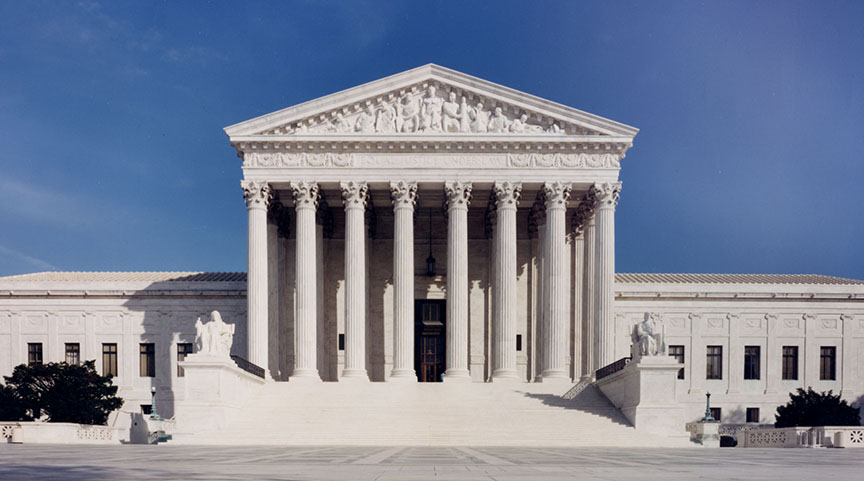Judicial Watch President Tom Fitton made the following statement regarding the U.S. Supreme Court’s decision to hear challenges to race-based admissions practices at Harvard and the University of North Carolina:
It is time, once and for all, for the Supreme Court to put an end to court-sanctioned racial discrimination in college admissions, both in public and private schools. The Supreme Court should recognize that its own past decisions legitimizing racial discrimination in school admissions were wrongly decided and should reverse them. Discrimination on the basis of race is becoming pandemic in all areas of society and must be curtailed as the Constitution requires. The Supreme Court needs to stop short this pernicious and building racialism.
In April 2021, Judicial Watch and Allied Educational Foundation (AEF) filed an amici curiae brief in support of Students for Fair Admissions’ (SFA) petition for a writ of certiorari to the U.S. Supreme Court, challenging a decision of the U.S. Court of Appeals for the First Circuit upholding Harvard College’s race-based affirmative action admissions program (Students for Fair Admission v. President & Fellows of Harvard College (No. 20-1199)).
Just last month, Judicial Watch filed an amici curiae brief with AEF in a companion case, in support of SFA’s petition for a writ of certiorarito the Supreme Court challenging a decision of the Court of Appeals for the Fourth Circuit, which upheld the race-based admissions program at the University of North Carolina (UNC) (Students for Fair Admissions, Inc. v. University of North Carolina, et al. (No. 21-707)). The amici brief asked the court to no longer allow “universities to defend race-based admissions programs by relying upon schools’ purported educational needs for increased diversity.”
The Supreme Court today agreed to review both decisions.
SFA argues that “the University’s [UNC’s] use of race in its undergraduate admissions process violates the Equal Protection Clause of the Fourteenth Amendment to the United States Constitution and Title VI of the Civil Rights Act of 1964.” SFA concludes that, “UNC’s admissions process incorporated impermissible racial considerations violating the Equal Protection Clause.”
Judicial Watch and AEF argue in their UNC amici brief that “race-based admissions criteria are antithetical to the 14th Amendment and fundamentally at odds with the Equal Protection Clause.” In general, the amici brief argues, “Prior Equal Protection rulings upholding racial classifications have not stood the test of time”:
Rulings by this Court allowing individuals to be treated differently based on race under the Equal Protection Clause have been wrongfully decided. Amici respectfully submit that three such cases account for some of the most famous missteps in this Court’s jurisprudence. These rulings show the troubling outcomes that spring from judicially created exceptions to the Equal Protection Clause’s strict prohibition against racial classifications.
To remedy this constitutional failing, Judicial Watch and AEF called on the court to make a clean sweep of past decisions permitting racial discrimination in college admission programs:
Race-based admissions programs for higher education have been the subject of this Court’s attention in five major cases [and in 26 separate opinions] in the last 43 years … These rulings have generated numerous opinions, pluralities, concurrences, and dissents, many of which conflict in fundamental and significant ways. These decisions achieved little consensus regarding whether race-based admissions programs can be implemented without violating equal protection principles and have not provided a workable construct for the lower courts and school officials in reviewing and implementing race-based admissions programs …
Consequently, Judicial Watch and AEF argue:
This Court should grant Petitioner’s writ of certiorari to reconsider whether race-based admissions programs should ever be permitted – and not simply to try (again) to adjust the strict scrutiny standard in a way that permits such programs.
The Allied Educational Foundation is a charitable and educational foundation dedicated to improving the quality of life through education. In furtherance of that goal, the Foundation has engaged in a number of projects, which include, but are not limited to, educational and health conferences domestically and abroad. AEF has partnered frequently with Judicial Watch to fight government and judicial corruption and to promote a return to ethics and morality in the nation’s public life.















